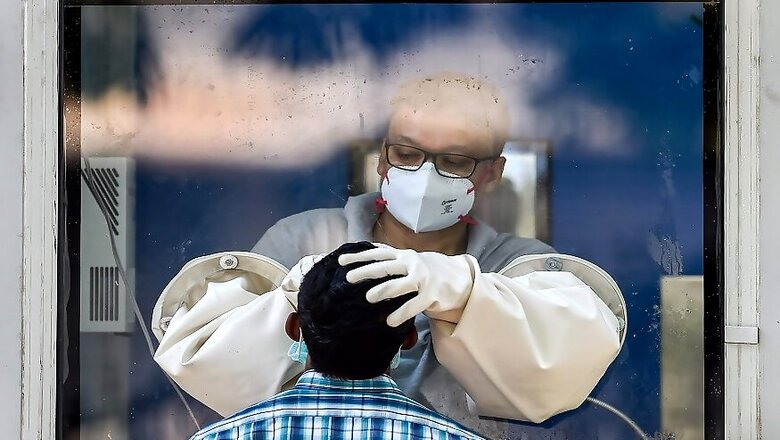
views
The Uddhav Thackeray government on Thursday night acquired 80 percent of beds across all private hospitals and nursing homes in the state till August 31 this year as Maharashtra stares at the 41,642 COVID-19 cases, accounting for a third of all cases in India. The Maharashtra government has also capped the prices of treatments that can be billed to patients and will now regulate the usage of private hospital bed capacity.
The order, which came into force under the Epidemic Diseases Act, was passed following days of negotiation with private hospitals. The hospitals can, however, charge their own rates in the remaining 20 percent beds. The move will expand the bed capacity while also address the issue of exorbitant prices charged by the private hospitals on patients who do not have medical insurance.
The order covers hospitals run by charitable trusts, including all the big Mumbai hospitals such as H N Reliance, Lilavati, Breach Candy, Jaslok, Bombay Hospital, Bhatia, Wockhardt, Nanavati, Fortis, L H Hiranandani and P D Hinduja among others.
The government’s notification directs private hospitals in Maharashtra to increase the number of operational beds in order to accommodate the maximum number of patients for both COVID-19 and non-COVID-19 patients. The move will open up around 4,400 hospital beds in the private sector in Mumbai alone.
Under the government's latest move, routine ward and isolation bed rates have been capped at Rs 4,000. For ICU beds without ventilators, rates have been fixed at Rs 7,500 per day while an ICU bed with ventilator support will be billed at Rs 9,000. The government also capped package rates of nearly 270 procedures and surgeries, including cancer treatments.
Further, the cost for an angiography procedure has been capped at Rs 12,000 and an angioplasty will be charged maximum Rs 1.2 lakh. A normal delivery at a private hospital cannot charged more than Rs 75,000 while delivery through a basic caesarean section has been capped at Rs 86,250.
The revised prices are applicable for patients who do not have medical insurance and those who have exhausted their medical insurance cover and healthcare providers in Mumbai, Pune, Navi Mumbai, Panvel and Thane, who have agreements with insurance companies, cannot charge more than the lowest bed category rates agreed.
The order said that the government and civic bodies will also refer patients for admission under the regulated portion of hospitals' capacity for both COVID and non-COVID treatments.
Mumbai is currently struggling with a severe shortage of beds to treat critically ill COVID-19 patients.
The package rates fixed by the government will be an all-inclusive rate including doctors’ fees, OT charges, room rent, investigations, implants, drugs among other charges. PPE costs are not included in the package rate. High-end drugs being tried in COVID-19 treatment, like Meropenem, immunoglobulin, Tocilizumab, etc have to be charged at MRP.
Hospitals also cannot charge more than 10 percent mark-up on the net procurement cost of items and services such as medical implants, lenses, pacemakers, prosthesis, PPE kits etc, which do not fall part of GIPSA-PPN or insurance package rates.
High end tests such as CT, MRI scans, Radiation, Stress test, Liver profile, among others will be charged as on actuals based on tariff as on December 31, 2019. Blood and blood products charges are also not capped.
Most private hospitals, though unhappy, say they will have to follow the orders despite incurring losses under the prescribed rates.
While an April 30 order had fixed rates for COVID and non-COVID treatments based on the lowest rates as per agreements with insurance companies, many patients complained of inflated bills from private hospitals.
Recently, Mumbai-based Nanavati Hospital came under fire after it billed Rs 16 lakh for a 15-day treatment of a COVID-19 patient. The patient later died.
The hospital was also accused of charging patients Rs 8,000-9,800 for a PPE unit, almost 10 times the procurement price.

















Comments
0 comment